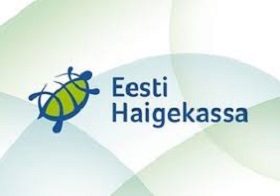Estonia, Financial Services, Funds, Health
International Internet Magazine. Baltic States news & analytics
Wednesday, 24.04.2024, 09:47
Funding for Estonian Health Insurance Fund to grow by EUR 114 mln next year
 Print version
Print version |
|---|
In addition, disabled child allowances will grow and a
special facility will open in eastern Estonia to help children who are victims
of sexual abuse or a suspicion exists that they have been sexually abused.
"Availability and high quality of healthcare services
is one of the important agreements of our society. Next year, the budget of the
Health Insurance Fund will increase as a result of bigger tax receipts and the
contribution made on behalf of pensioners by almost 144 mln euros, which in
addition to reducing doctor wait times allows us to continue developing primary
healthcare," Minister of Social Affairs Tanel Kiik said.
Kiik said that the ministry is discussing different
solutions to the challenges of primary healthcare with family doctors. The
budget for next year allows the ministry to move forward with discussions on a
review of the principles of financing, expanding the list of specialties
eligible for e-consultation, and regional extras for family doctors.
The government found means in the state budget for
increasing disabled child allowances two- to threefold from the present in
2020.
"The Riigikogu decision on raising disabled child
allowances was made in February, yet it was now that the government had to find
the money necessary for multiplying the support -- over 9 mln euros," Kiik
said.
The size of the budget of the area of government of the
Ministry of Social Affairs in 2020 is 5.88 bn euros, of which 2.7 bn euros will
go to social protection and 1.68 bn euros to healthcare. The size of the budget
of family policy is 774 mln euros and the size of the budget of labor market
almost 675 mln euros.
Of the 144-mln-euro increase in healthcare funding, 117.2 mln
euros will be the result of an increase in social security contributions. The
state's contribution on behalf of pensioners not in employment will grow by
almost 26.4 mln euros. The most important fields of medicine in terms of
financing in 2020 are primary healthcare, services for children, oncology
and hematology, and mental health. In primary healthcare, the list of
specialties where e-consultation can be used is to be expanded, principles of
financing reviewed and a pilot of regional extras for family doctors carried
out if possible. Also the pay increase for healthcare workers will
continue, with the state having allocated 50 mln euros for the fulfilment
of the pay accord.
Over 180 mln euros has been earmarked for compensating the
price of medicines, nearly 14 mln euros more than this year. As a completely
new service, the Health Insurance Fund will start paying remuneration to
residents, for which some 20 mln euros is estimated to be spent.
Estonia's healthcare spending is budgeted to total some 1.68
bn euros next year.
From January, the disabled child allowance will rise to 138
euros a month for children with moderate disability, to 161 euros for children
with severe disability and to 241 euros for children with profound disability.
The size of the budget of the measure is 22.3 mln euros, nine mln euros more
than this year. There are some 13,000 disabled children in Estonia.
The third facility in Estonia to help children who are
victims of sexual abuse or a suspicion exists that they have been sexually
abused will open next year. At the special facility, a child protection worker,
a psychologist, a doctor, a police officer and other specialists working with
children will be working together for the sake of the welfare of a child who
has fallen victim to sexual abuse or a suspicion exists that they have been
sexually abused. At similar facilities in Tallinn and Tartu 245 children
received help during 2018. The budget for 2020 sets aside 120 000 euros for the
Child House of eastern Estonia.
From April 2020, the average old-age pension will rise by 45
euros. The extraordinary portion of that rise, meaning rise in excess of the
increase in the pension index, will take 20.8 mln euros.
The state will spend 1.99 bn euros on all pensions taken
together during 2020.
Additional money in the amount of 100,000 euros will be
channeled into improving the availability of victim assistance services. The
sum total to be paid out for victim assistance, violence prevention and women's
support center services during the year is 2.5 mln euros.
The wages of welfare workers getting their pay from the
state budget will rise. The wages of social rehabilitation, special care and
foster care specialists will grow by 2.5% on the average.








 «The Baltic Course» Is Sold and Stays in Business!
«The Baltic Course» Is Sold and Stays in Business!

